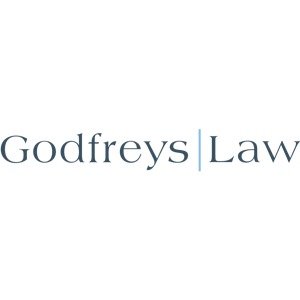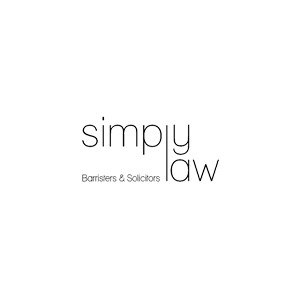Best Financial Services Regulation Lawyers in New Zealand
Share your needs with us, get contacted by law firms.
Free. Takes 2 min.
Or refine your search by selecting a city:
List of the best lawyers in New Zealand
About Financial Services Regulation Law in New Zealand
Financial services regulation in New Zealand aims to ensure the stability and integrity of the financial system, promoting fairness, transparency, and confidence among participants. The administration and regulation of financial services are primarily managed by the Financial Markets Authority (FMA), the Reserve Bank of New Zealand (RBNZ), and other supporting agencies. Key legislation includes the Financial Markets Conduct Act 2013 and the Anti-Money Laundering and Countering Financing of Terrorism Act 2009. These laws govern the conduct of financial service providers and market intermediaries, ensuring they adhere to ethical practices and legal compliance.
Why You May Need a Lawyer
There are several situations where you may require legal help involving financial services regulation:
- **Compliance Issues:** If your business needs to ensure compliance with complex financial laws or faces a potential breach, professional legal guidance can be invaluable.
- **Dispute Resolution:** In case of disputes with financial institutions or service providers regarding contracts or services, a lawyer can help mediate or litigate.
- **Licensing and Registrations:** Navigating the licensing requirements for operating financial services can be intricate, requiring expert legal advice to ensure successful applications.
- **Regulatory Investigations:** If you're under investigation by bodies like the FMA for regulatory breaches, engaging a lawyer becomes crucial to protecting your interests.
- **Mergers and Acquisitions:** Lawyers play a key role in ensuring that transactions comply with all regulatory requirements, safeguarding against future legal issues.
Local Laws Overview
New Zealand's financial services regulation is based on key laws and institutions:
- **Financial Markets Conduct Act 2013:** This act regulates financial product disclosures, the conduct of financial service providers, and the powers of the FMA.
- **Anti-Money Laundering and Countering Financing of Terrorism Act 2009:** AML/CFT regulations aim to detect and prevent money laundering and terrorism financing, imposing obligations on financial institutions across record-keeping and reporting.
- **Reserve Bank of New Zealand Act 1989:** Governing the role of the RBNZ, this act supports a stable, efficient, and reliable financial system. It includes provisions related to banking regulation and supervision.
- **Credit Contracts and Consumer Finance Act 2003:** This regulates credit contracts and consumer finance, mandating fair terms and full disclosures to protect consumers.
Frequently Asked Questions
What is the Financial Markets Authority (FMA)?
The FMA is a regulatory body overseeing financial markets in New Zealand. It monitors financial service providers to ensure fair, efficient, and transparent financial markets.
Who needs to comply with Anti-Money Laundering laws?
Entities such as banks, financial institutions, casinos, and other service providers are required to comply with AML/CFT laws, implementing customer due diligence and reporting suspicious transactions.
What is required to become a licensed Financial Service Provider (FSP) in New Zealand?
Businesses need to register on the Financial Service Providers Register (FSPR) and, depending on their activities, may also need to obtain a license from the FMA, meeting standards of ethics, competence, and accountability.
How does the FMA enforce compliance?
The FMA enforces compliance through monitoring, investigations, enforcement actions, and sanctions, including fines and legal proceedings against violators.
What happens if I breach financial regulations?
Breaches can lead to severe penalties including fines, legal action, or even revocation of licenses. It's imperative to address any compliance issues with urgency, seeking legal advice if needed.
What protections are there for investors in New Zealand?
Investor protections in New Zealand include comprehensive disclosure requirements, oversight of licensed entities, and avenues for dispute resolution and compensation.
What is a disclosure statement, and why is it important?
A disclosure statement provides information about a financial product's features, risks, and costs, ensuring consumers can make informed decisions. It is mandatory under the Financial Markets Conduct Act.
Can a foreign company offer financial services in New Zealand?
Yes, but they must comply with local regulatory requirements, possibly including registration and licensing, ensuring they meet New Zealand’s legal standards.
What steps should I take if I suspect a breach of financial regulations?
If you suspect a breach, contact the FMA or another relevant authority. It may also be beneficial to consult with a legal expert on the best course of action.
How are consumer finance protections enforced in New Zealand?
Organizations like the Commerce Commission enforce consumer finance protections, ensuring terms are fair, transparent, and that consumer rights are upheld.
Additional Resources
- **Financial Markets Authority (FMA):** Provides detailed guidance and resources on regulatory compliance and market standards.
- **Reserve Bank of New Zealand (RBNZ):** Offers information relating to banking regulations and financial stability.
- **Commerce Commission:** Monitors and enforces legislation relating to consumer rights and fair trading in financial services.
- **Ministry of Business, Innovation and Employment (MBIE):** Offers resources and support for business compliance and standards.
Next Steps
If you need legal assistance in the field of financial services regulation, consider the following steps:
- **Identify Your Needs:** Clearly define the scope and nature of your legal issue related to financial services regulation.
- **Seek Professional Advice:** Consult with a lawyer who specializes in financial services regulation to assess your situation and provide guidance.
- **Gather Relevant Documentation:** Compile all necessary documents related to your case, such as contracts, correspondences, and previous legal advice, to provide comprehensive information to your lawyer.
- **Consult Regulatory Bodies:** Engage with appropriate regulatory bodies, such as the FMA or RBNZ, for any preliminary guidance or clarification on regulatory requirements pertaining to your situation.
- **Consider Alternative Dispute Resolution:** Explore options like mediation or arbitration as potential approaches to resolving disputes without litigation.
Lawzana helps you find the best lawyers and law firms in New Zealand through a curated and pre-screened list of qualified legal professionals. Our platform offers rankings and detailed profiles of attorneys and law firms, allowing you to compare based on practice areas, including Financial Services Regulation, experience, and client feedback.
Each profile includes a description of the firm's areas of practice, client reviews, team members and partners, year of establishment, spoken languages, office locations, contact information, social media presence, and any published articles or resources. Most firms on our platform speak English and are experienced in both local and international legal matters.
Get a quote from top-rated law firms in New Zealand — quickly, securely, and without unnecessary hassle.
Disclaimer:
The information provided on this page is for general informational purposes only and does not constitute legal advice. While we strive to ensure the accuracy and relevance of the content, legal information may change over time, and interpretations of the law can vary. You should always consult with a qualified legal professional for advice specific to your situation.
We disclaim all liability for actions taken or not taken based on the content of this page. If you believe any information is incorrect or outdated, please contact us, and we will review and update it where appropriate.
Browse financial services regulation law firms by city in New Zealand
Refine your search by selecting a city.

















